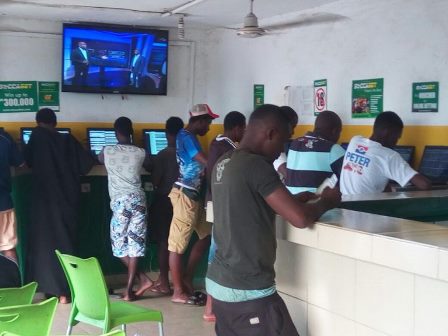How bankroll strategies work for different betting styles

There are a lot of different aspects of sports betting to assess. You have to look at statistics, at odds, at the implied probability of those odds and get the timing right to strike bets. But behind all of that is perhaps the biggest core principle of sports betting – managing the bankroll.
The budget that you have for sports betting is referred to as the bankroll. That could be a budget you have for a weekend of football betting, or a big horse racing event like the Cheltenham Festival.
After analysing the best bookmakers recommended by a good site like Match.Center Nigeria, you are going to want to pay a big attention to what your funds are doing. You want to make them work for you.
Why Have a Bankroll?
Gambling is a risky business. Everything that you do in sports betting has an element of risk involved. Even when you select a big odds-on favourite like Real Madrid to win a football match, there is no certain guarantee that they are going to pick up the victory.
If you see a team priced up at 1/3 odds-on to win a fixture, that is a 75% implied probability of the outcome happening. There’s still a sizable margin for error within those odds, that just perhaps, Real Madrid fail to find their winning touch in the match.
Having a bankroll and a plan of how to use it, helps to keep everything to do with your betting under control. With one, you know what bets your money is going to, and in turn, what expected profits could yield from a long-term betting strategy.
Security is also a key part of setting a bankroll. Losing streaks are going to happen to you in your betting experience. Having a set plan of what money you are using and how, is going to add a certain degree of discipline to what you are doing, just to keep you on track.
Fundamentals of a bankroll in sports betting
There are different ways to approach using a bankroll in your sports betting. That will be down to personal preference, plus at the end of the day it will fall in line with your betting strategy.
Here are some tips about how to manage your betting budget:
How To Set a Budget
The bankroll should be based not on what you can afford to spend, but on what you can afford to lose. Don’t bet with what you don’t have and don’t borrow cash to bet.
How Much Bankroll to Use?
Naturally how much your budget is, and what you are betting on will determine how much you can play. It’s common practice to see experienced sports bettors use between 1-3% of their overall bankroll for each bet from their bankroll.
Don’t Chase Losses
Once your budget has gone, step away and don’t go digging into your wallet to find other wagers to try and chase losses. Chasing losses by borrowing money or placing unplanned, irrational bets is a sure-fire slippery slope into problem gambling.
It’s not just losses that can pull punters out of control. When on a hot streak, it’s possible to become overconfident and start putting down more and more money, which could backfire massively.
Add Winnings to a Bankroll?
It is advisable to set any winnings from your sports bets aside. Don’t use them to top the initial bankroll back up to play further after some losses. You have already set the betting budget, so the winnings can be set aside completely as they can complicate and dilute the picture.
Consistency of Bets
It is also recommended to stick with the same unit size of bet where possible. Give yourself a little flexibility in this, but 20 units on one bet, 3 on the next and then 50 units on the next is widely inconsistent and can exacerbate losing streaks.
Flat betting, using the same amount of stake bet after betting, lowers your risk in terms of outlay. An example is, if you budget 100 and decide to play 3% per bet, that’s a manageable outlay per bet, as opposed to grabbing a huge 20% of your budget and throwing it on an impulsive bet.
Keep It Simple
There are different types of bettors. Some like to go for the fun accumulators or big full-cover bets on horse racing. The allure of bets like that is that they can yield big profits from a small stake.
But that’s only because they are highly risky wagers to start with. Although they can be a nice aside to try and put together but should be kept out of betting strategies. Keeping betting simple is an excellent piece of advice.
There’s nothing wrong with picking Win Single bets on football matches for example. It’s easy to be lured into exploring all the attentive betting markets available on a single fixture, but don’t spread yourself too thinly.






